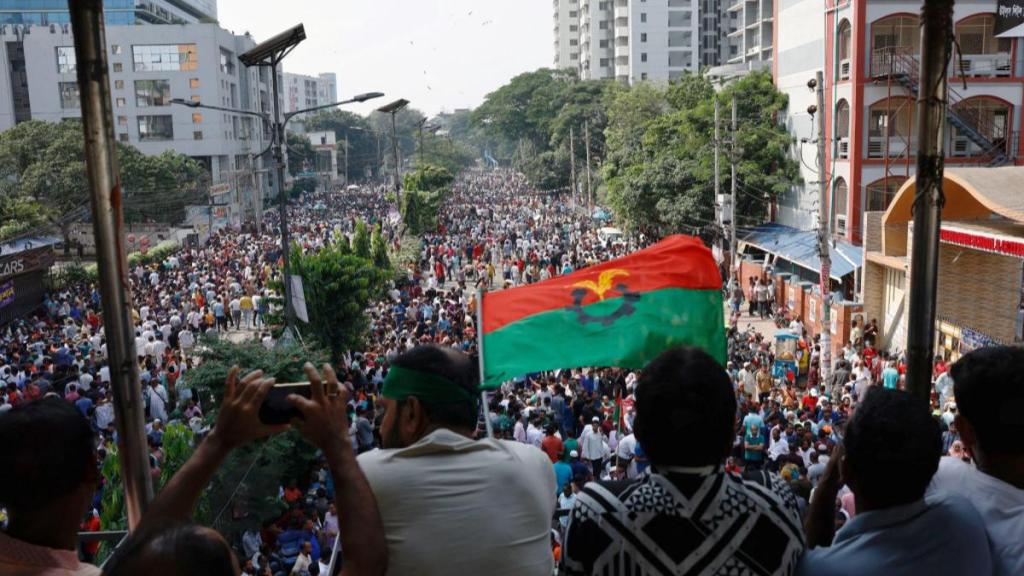It’s quite ironic that the countdown for the ouster of Bangladesh’s longest-serving Prime Minister Sheikh Hasina started immediately after she won a “landslide victory” in the elections held in January this year. It was a victory that any rational person should have been embarrassed about as the main Opposition party boycotted the elections amidst charges of forced disappearance of many of its leaders and extra-judicial killings. The fast-paced changes over the last few days showed that the dictator with a democratic façade hopelessly lost touch with reality. This was evident in the way she dismissed student protesters as terrorists and ordered the police to shoot them down. In the end, Hasina should consider herself lucky that she was able to flee the country and take temporary shelter in India, which puts the latter in a piquant situation.
The main opposition, the Bangladesh Nationalist Party, whose leader was kept under house arrest, has been vocal in its support of the “India Out” campaign, which it terms as an organic protest stemming from the Bangladeshi populace. Many of its senior leaders have been claiming for quite some time that the Awami League government has been in power, not through the votes of Bangladesh’s citizens but with India’s help and support. These may be outrageous allegations but there is no denying that some of the growing anti-India sentiment in Bangladesh now stems from India’s support for Hasina’s government. Historical grievances and accusations of overreach also contribute to some of the negative perception. Hasina had kept the anti-India sentiment under check, but things can deteriorate fast now. Signs of things to come were already visible with mob attacks on minorities and the burning down of an Iskcon temple.
In that context, external affairs minister S Jaishankar’s initiative to hold an all-party meeting and his subsequent measured statement in the Rajya Sabha was reassuring. While expressing hope for an early resolution to the political instability in Bangladesh, he said that India remains concerned about the status of minorities until law and order is restored. Through this period of violence, Jaishankar said, the Indian government repeatedly counselled restraint and urged that the situation be defused through dialogue. This should put to rest the speculation in many circles that India kept siding with the Hasina government during the recent disturbing events. The Indian community in Bangladesh should also take heart from the fact that the government is in close and continuous communication with them. There are an estimated 19,000 Indian nationals in Bangladesh, of which about 9,000 are students.
India obviously has to tread cautiously. It’s true that India’s relationship with the Awami League has been exceptionally good, with Hasina proving to be a good friend to India, providing critical assistance in tracking and neutralising Islamic militants, sorting contentious border issues, and allaying an upsurge of anti-Indian sentiments that characterised relations in the 1980s. But the old order in Bangladesh has changed irreversibly and India will have to adjust to the change. So the Modi government must keep the door open for the continuance of close and mutually beneficial ties with the new regime through discreet engagement and dialogue. India is likely to be dragged into the domestic political churn in Bangladesh, but that should not distract New Delhi from winning the perception battle. It’s going to be a tightrope walk, but engaging for mutual benefit and in good faith is the only way ahead.


